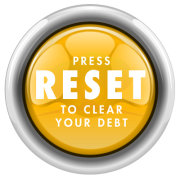Frequently Asked Questions
Bankruptcy FAQ
What is bankruptcy?
Bankruptcy is a legal process that allows an individual to be relieved of most or all of their debts. Alternatively, a consumer proposal for debt provides a structured way to repay a portion of the obligations while avoiding the legal implications of bankruptcy.
Who can declare bankruptcy?
Bankruptcy can be filed by an insolvent person who owes more than $1,000 and is unable to pay their debts in the normal course. Alternatively, a Canadian consumer proposal provides a structured way to manage debts through partial repayments, offering a viable solution to avoid bankruptcy.
Can I declare bankruptcy without using a Licensed Insolvency Trustee?
The Bankruptcy and Insolvency Act requires that all bankruptcies be filed with a Licensed Insolvency Trustee.
How long will I be bankrupt for?
The Bankruptcy and Insolvency Act will dictate the length of your bankruptcy or when you will be entitled to your discharge. In most cases, a first time bankrupt will be discharged in 9 or 21 months and a second time bankrupt in 24 or 36 months. The Trustee will review the discharge process with you directly. Alternatively, you might want to consider the benefits of a consumer proposal, which often provides a quicker financial recovery timeline. Many people find that consumer proposal benefits include avoiding bankruptcy, retaining assets, and reducing overall stress.
What does it cost to file a bankruptcy?
Depending on your income and your family situation you may be required to make surplus income payments to the estate based on standards set by the federal government. The Trustee is entitled to charge a fee with respect to your bankruptcy. Trustee fees are prescribed under the Bankruptcy and Insolvency Act and are the same regardless of the trustee you see. These payments will be discussed in more detail in your free initial consultation with us and we are happy to answer any questions you may have.
Will a bankruptcy stop collection action?
Upon filing a bankruptcy, unsecured creditors will not be able to initiate or continue legal or collection activities. Similarly, filing a consumer debt proposal also offers legal protection from creditors and can be an effective alternative with many consumer proposal benefits that are worth considering.
Will I lose all my assets if I declare bankruptcy?
The following assets are exempt from seizure by the Trustee (pursuant to The Ontario Execution Act):
- Personal effects to a value of $5,650
- Household furnishings to a value of $13,150
- Tools of trade to a value of $11,300
- Farming Tools to a value of $29,100
- Automobile (one only) to a value of $6,600
- Primary Residence (Owned) to value of less than $10,000
- Life Insurance exempt if preferred beneficiaries
These exemptions do not prevent a secured creditor from realizing on assets which have been pledged as security.
Do I have to disclose all my debts?
All debts, including those owing to relatives and friends must be disclosed. This is also a requirement if you are considering a consumer debt proposal, as full financial disclosure is a key part of the consumer proposal process. Understanding the consumer proposal steps ensures transparency and allows your Licensed Insolvency Trustee to propose a fair repayment plan to your creditors.
Will bankruptcy release me from all debts?
Not all debts are released by bankruptcy. The most common debts which survive bankruptcy are:
- Student loans where the bankrupt last attended school less than 7 years from the date of bankruptcy
- Fines or penalties imposed by a Court; restitution orders
- Alimony and support
If these types of debts apply to you, it may be worth exploring the benefits of a consumer proposal, which can still provide relief from other unsecured debts while avoiding the full impact of bankruptcy. Many people find that the consumer proposal benefits—such as asset retention, avoiding surplus income payments, and stopping collection calls—make it a more appealing option. Those with tax debt can also explore how a consumer proposal CRA arrangement may help reduce or settle amounts owed to the Canada Revenue Agency.
What are my responsibilities once I declare bankruptcy?
Once you have declared bankruptcy you will be required to perform duties, which include:
- Disclose all assets and debts to the Trustee;
- Assist the Trustee in dealing with your property;
- Attend a meeting of creditors, if required;
- Keep the Trustee advised of any changes in address, phone number, employment and income;
- Provide information for tax return preparation;
- Surrender all credit cards;
- Attend two (2) financial counselling sessions
What if I have co-signed debts or have debts guaranteed by someone else?
A guarantor, or co-signer, will be responsible for the entire debt as they are jointly and severally responsible. It is recommended that you disclose the possible bankruptcy to this individual so they can make appropriate arrangements.
Can I have a bank account?
Yes, however if you owe money to your current bank, it is recommended that you open an account at a new financial institution.
What effect will bankruptcy have on my credit rating?
The truth is that most clients’ credit ratings are in trouble before they even meet with a trustee. Most credit bureaus keep information about bankruptcy on their records for about seven (7) years for first time bankruptcy clients. We can provide you with resource material on understanding your credit report, your credit score and how to rebuild your credit.
Consumer Proposal FAQ
What is a Consumer Proposal?
A consumer debt proposal is a formal arrangement to pay creditors under the Bankruptcy and Insolvency Act without going bankrupt. Most consumer proposals require an interest free partial repayment of the debt over a period of time, not exceeding 5 years.
Who is Eligible to file a Consumer Proposal?
A consumer proposal may be filed by an insolvent individual who is unable to pay their debts in full and who owes less than $250,000, excluding any mortgages on their primary residence. This financial solution is suited for those who cannot pay their debts in full and need reliable consumer proposal benefits such as stopping collection efforts.
Can a Consumer Proposal be filed without a Licensed Insolvency Trustee?
The Bankruptcy and Insolvency Act requires that all consumer proposals be filed with a licensed Administrator (Trustee). If you’re searching for a consumer proposal near me, make sure you consult with a Licensed Insolvency Trustee who can guide you through the correct legal process.
What happens to assets under a Consumer Proposal?
Assets remain the property of the individual and do not become the property of, or vest to, the Trustee. This is one of the key advantages outlined in the consumer proposal steps, where unlike bankruptcy, you typically retain your assets while restructuring your debt.
Will a Consumer Proposal stop collection action?
Upon filing a consumer proposal, unsecured creditors will not be able to initiate or continue legal or collection activities. This protection also extends to debts owed to the Canada Revenue Agency, making a consumer proposal CRA option a powerful tool for managing tax-related debt.
What if the creditors do not accept the Consumer Proposal?
Although the majority of proposals are accepted as filed or subsequently amended, if the proposal is not accepted by the majority of creditors we will advise alternative options based on your particular situation and circumstances. Working with the best consumer proposal company increases the likelihood of crafting a proposal that creditors are willing to accept.
What if the Consumer Proposal is not completed?
If the payments under an accepted consumer proposal become 3 months in arrears, the consumer proposal will be automatically annulled and creditors are able to resume collection action for the amount due to them. A second consumer proposal may not be filed with respect to the same debts if the first consumer proposal is annulled, so understanding the full consumer proposal steps beforehand is crucial to ensure successful completion.
What effect will making a Consumer Proposal have on credit rating?
Most credit bureaus keep information on record for 3 years following the last successful completion of a proposal. This is often seen as a more favorable outcome compared to bankruptcy, especially when working with the best consumer proposal company that helps you minimize long-term credit damage.
Will there be a meeting of creditors or a requirement to appear in Court?
For most proposals no meeting of creditors occurs and there is no requirement to go to Court. However, if creditors request a meeting the client must attend.
How are co-signers and guarantors affected?
Co-signers and guarantors will be responsible for the unpaid balance and may be asked to make full payment upon the filing of the proposal. It is our recommendation that the co-signer(s) contact the lending facility to make payment arrangements as they would be jointly and severally responsible for the debt.
Contact Us
If you would like to ask us a question, please complete the quick form below.





